

COVID-19 has exacerbated feelings of loneliness in communities around the world and, with an estimated 33 percent of adults experiencing loneliness in their lifetime, wellness-driven is more critical than ever before. By 2050, the United Nations predicts that 68 per cent of us will be living in urban areas, up from 56 per cent today. As architects, it is our collective responsibility to sincerely factor physical and mental health into the design of cities and town centres.
is, for me, a time to reflect on the communities and inspired places that we have designed and delivered at over the years. However, it is also a time to challenge my own city-shaping assumptions so that we continue to subvert civic norms, innovate across all sectors and build healthier, resilient, wellness-driven neighbourhoods and town centres.

The importance of a healthy town centre
What makes a healthy town centre in 2022? For me, it is not just about shops, housing and the public domain, but about how these elements are interwoven to create a communal ‘home’ where people feel welcome.
Even further, it is about taking our design dialogue beyond architecture and beyond city-shaping to consider how obesity, social isolation, inter-generational connectivity, loneliness, mental health and equality by diversity can drive meaningful and authentic design outcomes now and in the future.
With this in mind, we have a unique opportunity to improve the spaces we design and foster healthier, happier, more connected communities who engage with their town centre and, most crucially, with each other as part of their daily routines.
As social researcher Hugh Mackay said: “The biggest contributor [to loneliness] is social fragmentation. Humans are social animals, and we need communities.”
Related:
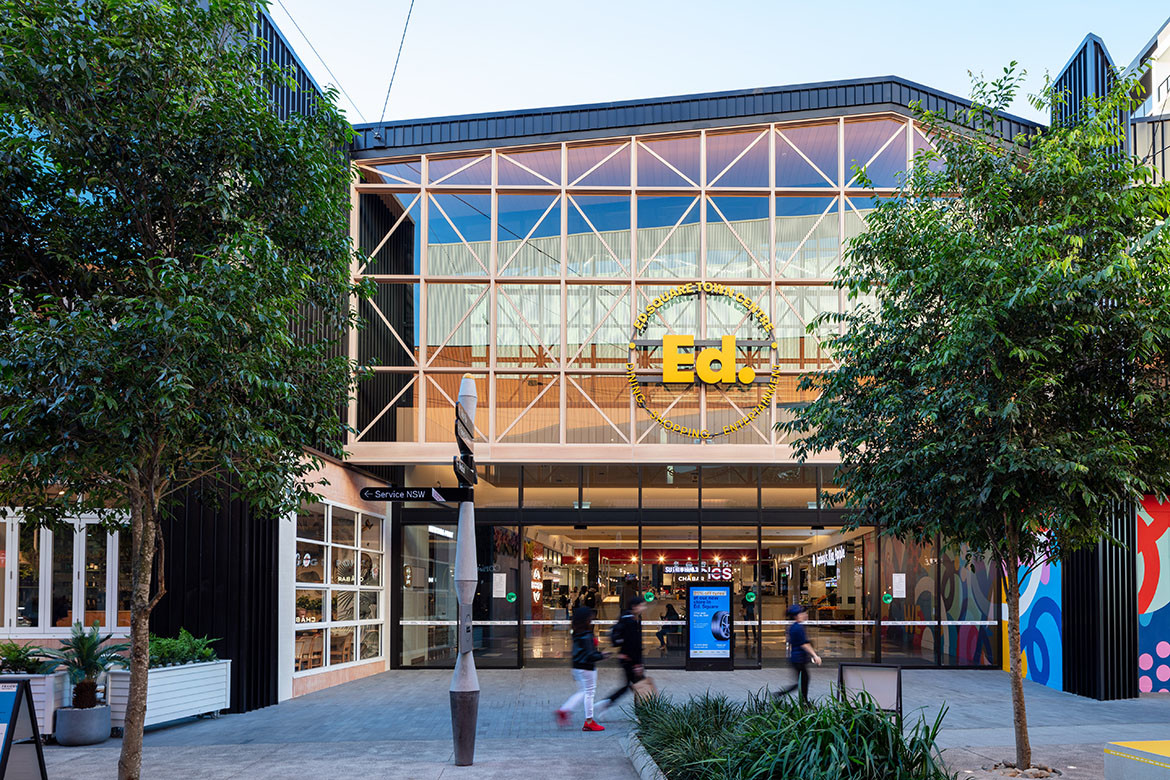
A neighbourhood that acts as a true antidote to loneliness
It was this realisation that drove the design and delivery of in Edmonson Park, NSW. In a climate where mental ill-health is on the rise, we envisioned creating a neighbourhood that acted as a true antidote to loneliness – a place where connections are made and dichotomies of spaces and people converge.
The master planning and design were underpinned by permeability, walkability, health and wellness – all woven around a green, pedestrian ‘spine’ that would transform the space from civic to communal and enter the ‘home’. Located at the spine’s centre, we designed the Town Square as a shared ‘living room’ and beating heart for the community to mingle, Eat Street as an intimate yet vibrant tree-lined public ‘dining room’ and Main Street as a ‘backyard’ for the community to congregate, enjoy family play and participate in community events.
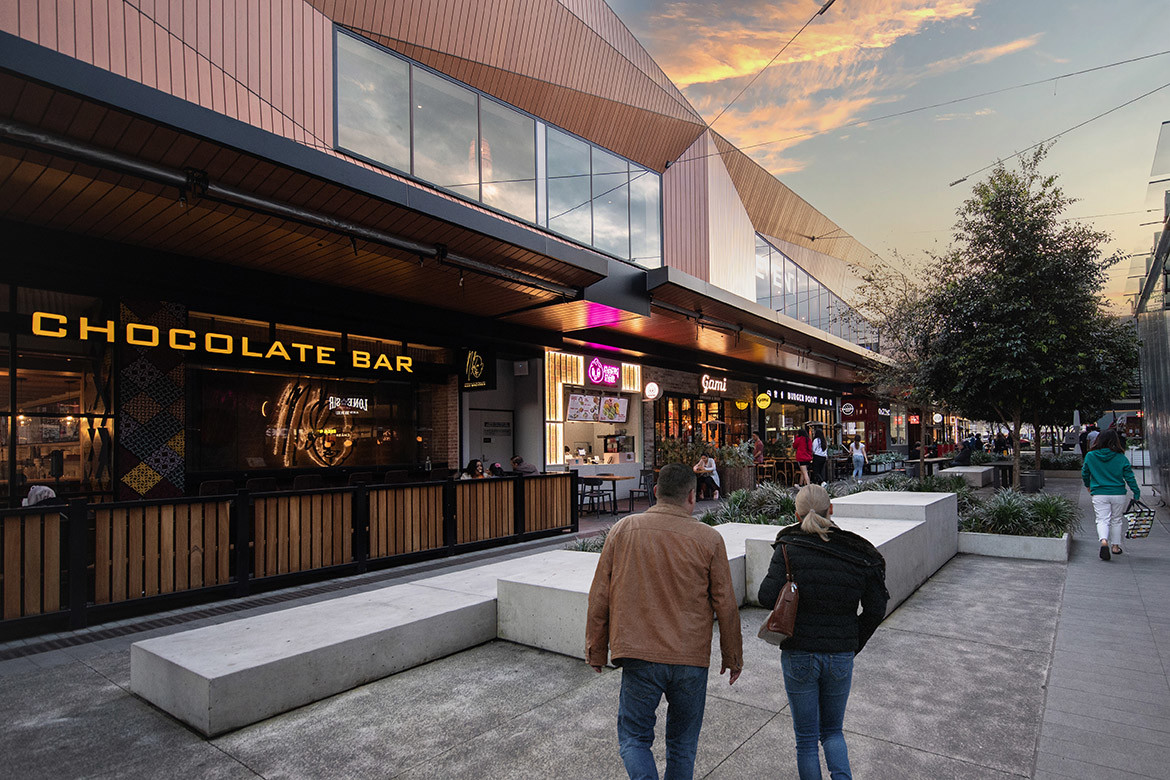
Today, we have achieved just this. The 25,000 square-metre mixed-use development provides community, retail, leisure and living to one of Australia’s fastest growing populations in south-west Sydney and the town centre acts as a wellness-driven urban epicentre for the community. Most importantly, it’s a collective and authentic ‘home’ for the diverse neighbourhood of Edmonson Park.
At every stage of the design and delivery journey, we challenged our pre-existing assumptions to create a healthier, more connected and sustainable 6 Star Green Star hub that is the true embodiment of live, work and play – a ‘third place’ that brings inclusiveness, inter-generational care, societal cohesion and diversity to the forefront of design outcomes.
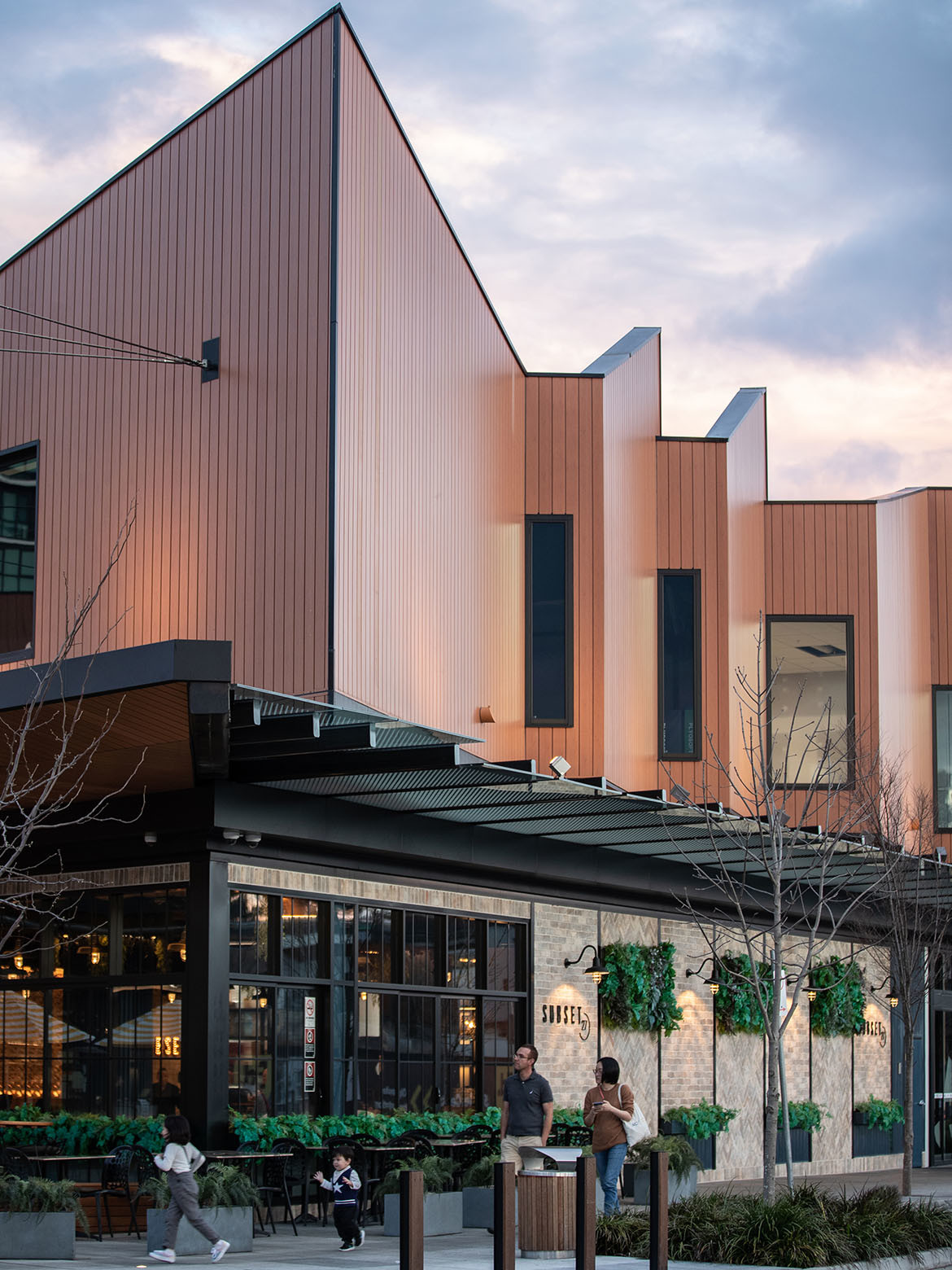
A case in point: Shell Cove Town Centre
In another example of wellness-driven architecture, our HDR-designed Shell Cove Town Centre (NSW) caters to Shellharbour’s burgeoning seaside community. The new town centre orients commercial, residential and leisure facilities around the area’s prized – its blue heart and the new 270-berth Marina.
Inspired by Shellharbour’s natural beauty and unique coastal lifestyle, our master planning and design is centred around diversity of built form and materiality. This is to create a contemporary costal narrative and a pedestrian-friendly, memorable heart for the community that is deeply integrated into its local setting.
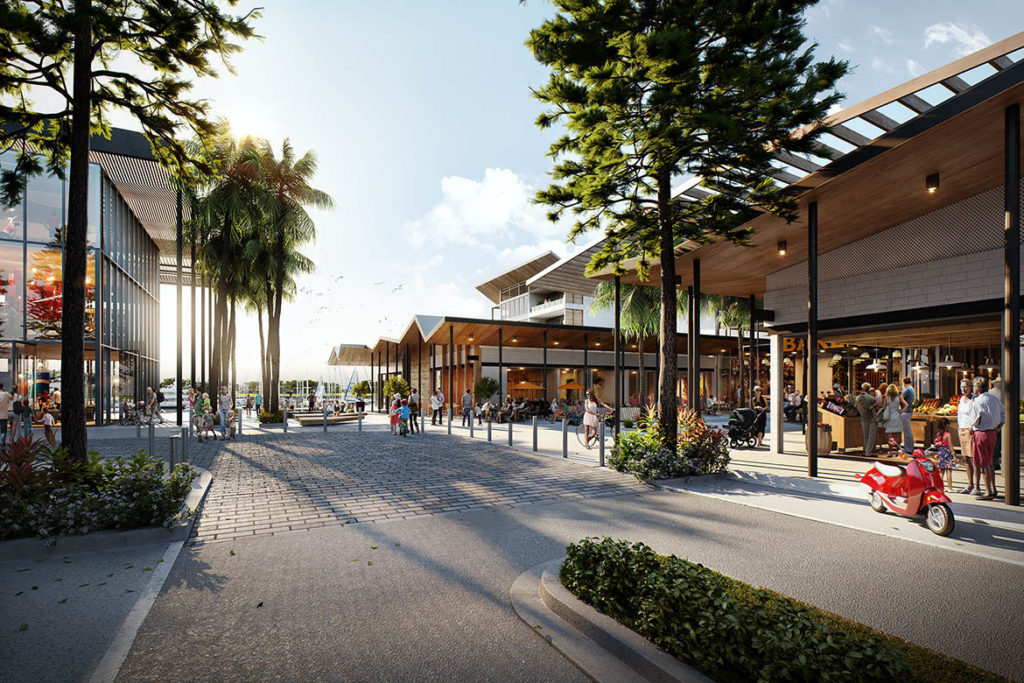
Brought together in a holistic urban strategy that creates more than the sum of its components, today the in-shore harbour and its surrounding waterfront precincts encapsulate the town centre which delivers a mix of pedestrian-focused public domain, foreshore dining, kids’ beach, shopping, cafes and parklands for its community.
Like Ed.Square Town Centre, we have designed and delivered an inter-generational neighbourhood – for families, young people and mature generations – that seamlessly blends public and private domains, enabling social cohesion and paradigm-shifting coastal placemaking.

Key ingredients for designing a town centre
I often get asked what the key ingredients are to designing a town centre that combats loneliness and creates a healthy and sustainable community, so I thought I’d share some of my go-to architectural design principles.
Firstly it needs a town and a centre to form the beating heart of civic pride and create a communal gathering space for the community. And it should:
1. Be permeable in that it connects and opens out to champion integration and walkability.
2. Embrace multi-generational living and social initiatives that promote inclusion, diversity, cohesion and wellbeing.
3. Play with height, shapes and forms to anchor or frame views of importance and guide the eye to separate places.
4. Pay homage to its setting. It must be guided by principles, and be embedded within its ecological, geological and knowledge systems.
5. Be sustainable and resilient. It must be connected to public transport, integrate with nature and be founded on passive environmental design principles to allow for affordable longevity.
6. Foster impromptu play and incidental connection to ignite conversation and community between people from all walks of life, ultimately forming a sustainable social patchwork.
I like to look to global examples such as the HDR-designed transit-oriented community of , and , which serves as a catalyst for neighbourhood revitalisation, and for inspiration.
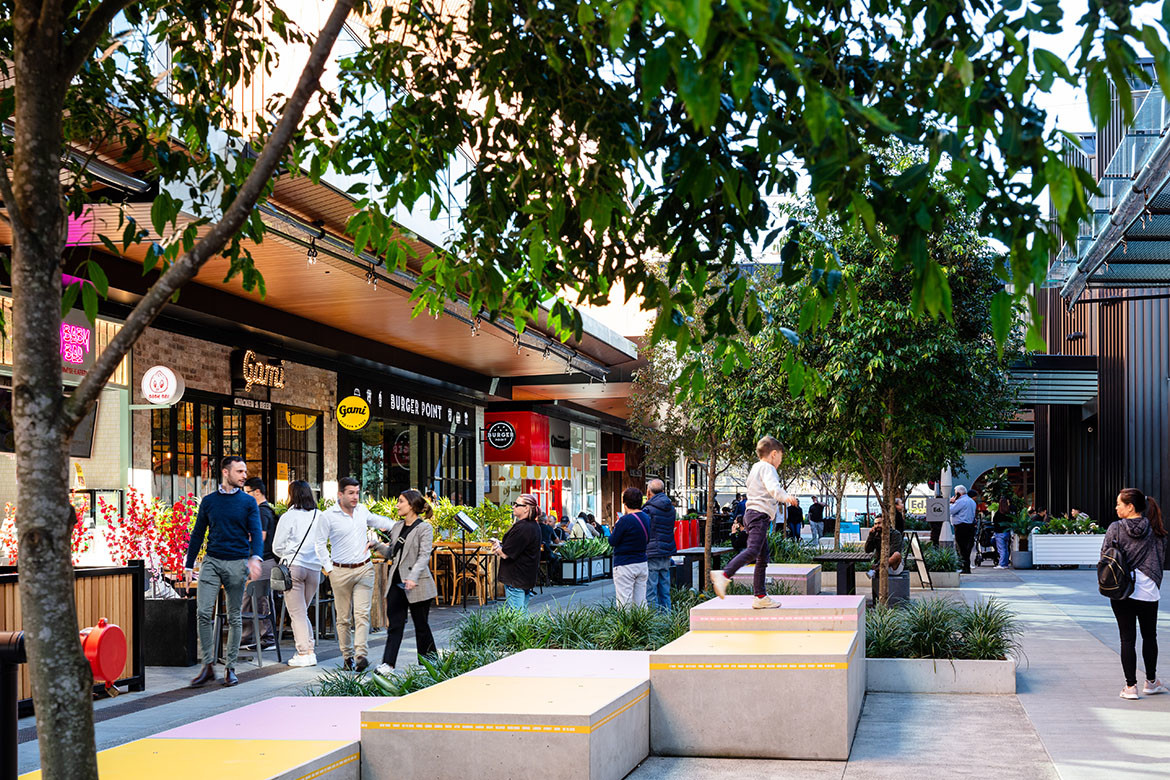
Building a sense of authentic community and place is no easy feat…
… But, when these design principles work in harmony, a healthy, happy and sustainable town centre can be truly realised. Today, architecture is a mechanism for positive change and we know that a diverse retail and entertainment offering, quality amenities and convenient connections in a stimulating, welcoming, walkable environment can indeed create a town of more fulfilled people. It’s an experience ‘arms race,’ not an amenities one, and the lessons learned can be replicated around the world.
Alex Wessling is a director at HDR.
HDR
Photography
Courtesy of HDR
We think you might also enjoy .
The post appeared first on .